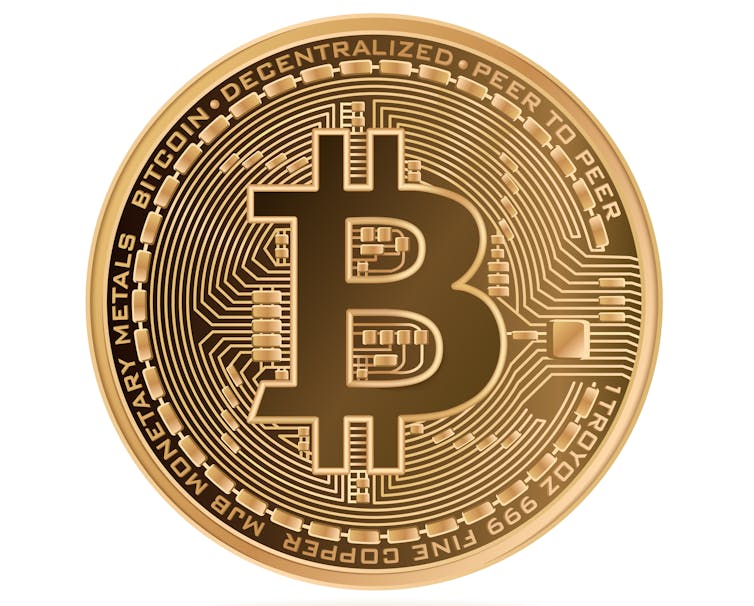Anthill 23: Bursting the Bitcoin bubble

Courtesy of Annabel Bligh, The Conversation; Gemma Ware, The Conversation; Kelly Fiveash, The Conversation, and Will de Freitas, The Conversation
In this episode of The Anthill podcast from The Conversation, we’re delving into the world of Bitcoin. The cryptocurrency has come a long way since its launch by the mysterious person (or persons) Satoshi Nakamoto in 2008. The price of one Bitcoin hit a peak of more than US$19,000 in December 2017. It has since fallen below US$9,000.
Bitcoin has made a lot of headlines over the last year, but will it be the currency of the future? To find out, we spoke to professor of business history at Bangor University, Bernardo Batiz-Lazo, about what makes money money. He shared his doubts about Bitcoin – or any other cryptocurrency – going mainstream anytime soon.
And Larisa Yarovaya, lecturer in accounting and finance at Anglia Ruskin University, explains some of her recent research into the effect of US policy announcements on different cryptocurrencies. Her findings give some insights into whether or not they make good assets for investment. She also tells us how cryptocurrencies respond in different ways to the US dollar and gold.
For many, one of the big appeals of cryptocurrencies is the fact that they are not regulated by any governments. But different countries have responded in wildly different ways to the rise in popularity of Bitcoin. Initial coin offerings have been banned in South Korea, where regulators are considering shutting down local cryptocurrency exchanges. Meanwhile, the threat of regulation in China and elsewhere recently triggered a significant slide in Bitcoin’s value.
Russia, however, has been a hotbed of cryptocurrency innovation, where President Vladimir Putin wants to create infrastructure for the national adoption of virtual coins. And in Sweden there’s talk of releasing a national cryptocurrency.
The Conversation’s technology editor Kelly Fiveash spoke to lawyer Iwa Salami at the University of East London and Brian Lucey, finance expert at Trinity College Dublin, to take a closer look at what different governments are saying – and doing – about regulating cryptocurrencies.

Sinking energy into digital currency. from www.shutterstock.com
Bitcoin has come in for some harsh criticism for the amount of energy it takes to verify every transaction involved – a process that has been dubbed “mining”. This involves large amounts of energy-guzzling computer power.
Will de Freitas went on a search to find out whether there might be a more sustainable way to make cryptocurrency in the future – by building greener computers. Along the way, he spoke to physicists Oscar Cespedes at the University of Leeds and Heiner Linke at Lund University, about whether the computers of the future might be better for the environment.
The Anthill theme music is by Alex Grey for Melody Loops. Music in the segment on state reaction to bitcoin is Tech Toys, by Lee Rosevere. And music in the green computing segment is Distilled, by Nctrnm.
Click here to listen to more episodes of The Anthill, on themes including Sex, Growing Up, Myths, and Pain.
Thank you to City, University of London’s Department of Journalism for letting us use their studios to record The Anthill.
Annabel Bligh, Business + Economy Editor, The Conversation; Gemma Ware, Society Editor, The Conversation; Kelly Fiveash, Technology Editor, The Conversation UK, The Conversation, and Will de Freitas, Environment + Energy Editor, The Conversation
This article was originally published on The Conversation. Read the original article.



